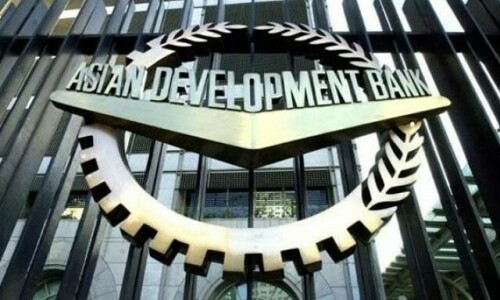ISLAMABAD: Pakistan will be one of the countries to benefit from the new Asian Development Bank (ADB) project for creating resilient and inclusive cities.
The ADB board has approved technical assistance for ‘Growth, Resilience, Energy Efficiency and Nature-based (GREEN) Solutions for Livable Cities’.
The project, to be implemented in Armenia, Azerbaijan, Georgia, Kazakhstan, the Kyrgyz Republic, Pakistan, Tajikistan, Turkmenistan and Uzbekistan, will “foster participatory urban and regional planning and integrate climate resilience and disaster risk management”.
As per project’s datasheet, the assistance will “tackle climate mitigation and adaptation challenges and help develop transformational adaptation projects responding to climate change priorities in developing member countries”.
The assistance will “strengthen the capacities of government agencies and stakeholders in integrated urban planning, municipal finance, governance, climate change, tourism development, housing, private sector participation, basic urban services, and other emerging areas”.
As part of the ‘ADB Strategy 2030’, the lending body envisages making cities “more livable as one of its seven operational priorities for achieving a prosperous, inclusive, resilient, and sustainable Asia and Pacific region”.
The technical assistance is aligned with this priority as it will “reduce inequalities, foster gender equality, promote climate and disaster resilience, strengthen institutional capacity, and advance regional cooperation”.
The urbanisation across Central and West Asia was not uniform, the bank said, adding the trajectory is characterised by “unbalanced and rapid urban growth, widening social and spatial inequality, and increasing environmental degradation and pollution”.
“Cities across the region suffer from unregulated growth and climate change, which present challenges to livability.”
This unplanned and unmanaged urbanisation results in “a vicious circle of stress on city infrastructure, inefficient utilisation of resources, climate vulnerability, and environmental degradation”.
The project documents explain that the countries need national urban assessments (NUAs) for evidence-based decision-making in urban and regional planning, economic development, and environmental resilience.
Published in Dawn, December 10th, 2023














































Dear visitor, the comments section is undergoing an overhaul and will return soon.